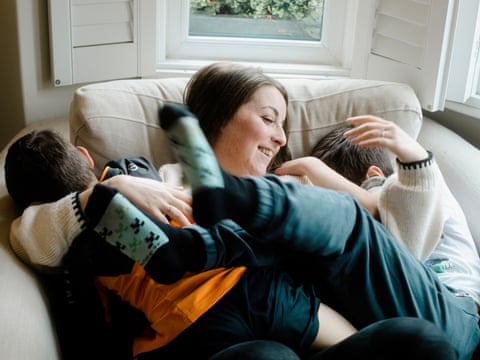The belief that mothers should focus solely on their children is no longer the default. But with grandmothers, traditional ideas still hold sway. Constance fills her days with music. The 77-year-old, who lives in London, studies and performs classical piano. To stay involved with her community, she volunteers with local arts projects, a community garden and an oral history initiative.
After a career working as a mental health professional, what Constance wants from retirement is to continue engaging with causes and passions that matter to her. (Her name has been changed for her privacy.). “Most important to me is my commitment to building a fairer, more equal, and non-violent world where people care about the planet,” she says.
But she’s noticed others projecting assumptions onto her – “expectations that every grandparent, grandmothers especially, should feel fulfilled [by] and dedicated to their grandchildren”, she says. Constance loves her three young grandchildren, but is not interested in moving closer to where they live, about two hours north of London. “I would not be willing to compromise if I felt that I was being asked to sacrifice my commitments in order to look after grandchildren, unless it was some kind of emergency,” she says. Her son would love to have her as a neighbor, but doesn’t pressure her, Constance says: “Actually, the pressure comes from the people around me.”.
Constance’s friends, despite being what she describes as lifelong “hardcore feminists”, behave as though a grandmother “should want to spend every minute possible” with their grandchild. These friends judge each other if they choose independent travel over family holidays.
“There’s almost a sense of competition for how many grandchildren you’ve got,” she says. “The more you’ve got, the better you are. I feel very ambivalent when I hear people say they can’t fathom the future without a grandchild,” or that they’re “dismayed” their children are child-free, she says.
The absence of grandchildren can elicit pity or confusion. “I do get sorrowful looks from friends, all of whom have dozens of grandchildren, whenever the subject of grandchildren comes up,” says Mary, a Sydney-based 73-year-old retiree who loves writing and theatre. “Some will comment how sad it is” that she doesn’t have any grandchildren, says Mary. She admits she might have liked “an opportunity to have a second chance of bringing up a child, with the hindsight of what I could and should have done better as a mother”.
But she’s hardly hung up on not having grandchildren: “I absolutely love my obligation-free life.”. The belief that mothers should focus solely on their children and spend little time on professional or personal interests is no longer the default. But when it comes to grandmothers, traditional ideas still hold sway.
As a grandmother, observes Constance, “the old stereotypes rebound and you may find yourself … expected to prioritize grandchildren and sacrifice hobbies and interests, and cut short your day in order to be a carer for your grandchildren”. “We’re not just here to have children and bring up the next generation … Why do people feel like that’s all their life could consist of in their older years?” asks Constance. “I just know I don’t feel that way myself.”.
For women like Constance, pressure comes from the persistent idea that a woman’s value is tied to her role as a caretaker, which also minimizes the many other ways she contributes to society. According to age-old, gender-essentialist norms, women are first and foremost natural child-rearing enthusiasts.
The expectation that childcare should define an older woman’s life is politically convenient. In the US, childcare programs have been underfunded for decades, leaving many families, particularly those from marginalized communities or raising children with disabilities, without accessible, reliable support. This means parents have real childcare needs that are hard to meet. But grandparents “are expected to just be sort of doing nothing in the background”, ready to spring into action as an unpaid social safety net, observes Vanessa May, a professor of sociology and co-director of the Morgan Centre for Research into Everyday Lives at the University of Manchester.
In a 2020 podcast conversation, JD Vance agreed with host Eric Weinstein that the “whole purpose of the postmenopausal female” is to provide grandchild care, citing his own mother-in-law taking a sabbatical from her role as a biology professor at the University of California, San Diego, to help raise his kids.
“Our individualistic society has always undervalued care labor, and the monumental amount of unpaid care labor that women have done historically has been undercompensated and overlooked,” Darby Saxbe, an associate professor of psychology and director of the University of Southern California’s Dornsife Center for the Changing Family, has said.































